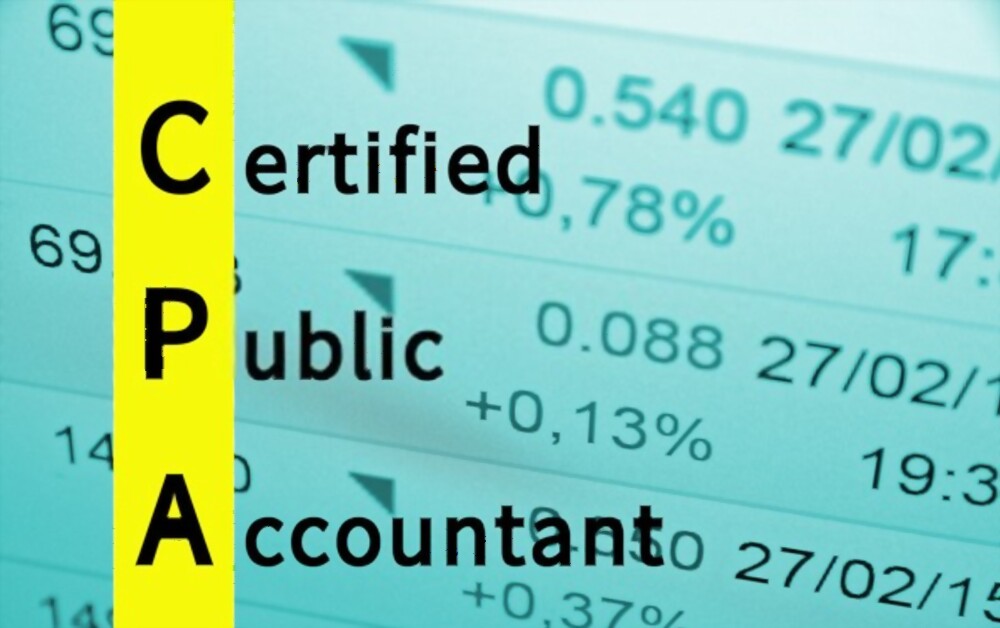A CPA or certified public accountant is an accounting practitioner who has passed the CPA examination and continues to meet the requirements for licensing as a CPA.
While each state’s CPA licensing requirements vary, the majority of Certified Public Accountants are capable of acting as accounting consultants, tax consultants, auditors, business and financial counselors, and much more.
A skilled, certified public accountant will provide significant experience to your firm, acting as both an adviser and an accountant—and freeing up your time to concentrate on other aspects of your business.
How are Certified Public Accountants and a General Accountants Distinct?
Not every accountant has the certification of a certified public accountant. In America, the only way to get a license in accounting is to become a certified public accountant.
To become a certified public accountant, candidates must pass a specialized test. Additional criteria vary by state: candidates are often required to possess a bachelor’s degree and two years of relevant experience in addition to the test.
A certified public accountant has been pre-screened and is thus more likely to be knowledgeable and experienced. Additionally, they will be qualified to handle more complex duties and activities, such as tax audits.
A certified public accountant certification must be updated on a frequent basis (the frequency varies by state) to guarantee that the accountant’s experience and knowledge stay current.
What Does a Certified Public Accountant Do?
Taxation
The certified public accountant will prepare your small business’s taxes when tax season arrives.
While it is feasible to complete company taxes on your own-accounting software such as QuickBooks makes it simpler, they may rapidly become difficult, and errors are common: this is where a qualified CPA comes in.
For instance, firms may sometimes be required to file taxes in many states, particularly if their transactions are conducted over the Internet. And the interest on a short-term debt must be appropriately written off, or you may have difficulty obtaining a loan in the future.
Identifying which costs are tax-deductible—your automobile, for example? Your rent—can likewise be difficult to manage without expert assistance.
Establishing Your Business
If you’re just getting started, the certified public accountant can assist you in determining the best legal form for your company, whether that’s a sole proprietorship, a C-corp, an LLC, a partnership, or an S-corp.
Once you’ve selected one, it’s tough to change—which is why it’s critical to make the proper choice in the first place. The distinctions between various legal frameworks may be perplexing, which is why it’s important to get expert assistance.
Additionally, they can assist you in selecting the finest health insurance coverage for your workers based on your budget and ensuring compliance with federal and state employment laws and requirements to prevent penalties.
Advising During Economic Downturns
One benefit of employing a certified public accountant is that they may provide a fresh perspective on your business’s finances, assisting you in making long-term choices and evaluating risk.
Small business owners frequently devote all of their time to day-to-day operational concerns and may fail to take a step back to consider the larger or longer-term challenges they should address.
If the certified public accountant is experienced with your business, they may even assist you in navigating recessions and economic downturns by advising you on how to remain relevant.
Financial Examinations
Just as you see your doctor annually for medical examinations, an accountant may undertake financial examinations on a frequent basis—typically four times each year. A certified public accountant may examine your sales figures, profit margins, cash flow, inventory, and payroll to determine whether budgetary modifications are necessary.
Loan Requests
A certified public accountant can pitch in an idea on whether or not to take out a loan, taking into consideration your cash flow, potential hazards and penalties, and the impact on your business’s taxes. For example, suppose you’re contemplating redistributing your business’s ownership percentages to qualify for a loan.
The certified public accountant will be able to assist you by counseling you on the intricacies of shifting ownership depending on the structure of your business and, if required, recommending you to a tax attorney.
If you want to borrow money, the certified public accountant will also assist you with the loan application process by creating financial statements for you.
Conclusion
Not all businesses need the services of an accountant. However, they may be a very helpful resource in the long term, saving you time, money, and energy. Bear in mind that you are entrusting the accountant with critical and private financial information and thus it is essential that they be trustworthy.
From your business’s structure, budget, and perks through tax time and loan applications, an accountant will provide experience and safeguard you from paying the price—literally—for financial blunders. And if you’re going to engage an accountant, they should be a qualified public accountant who has been vetted and validated.
























[…] who has obtained a designation by a combination of education, practice and licensing. In this blog, we shall learn everything there is to know about a CPA and his or her […]